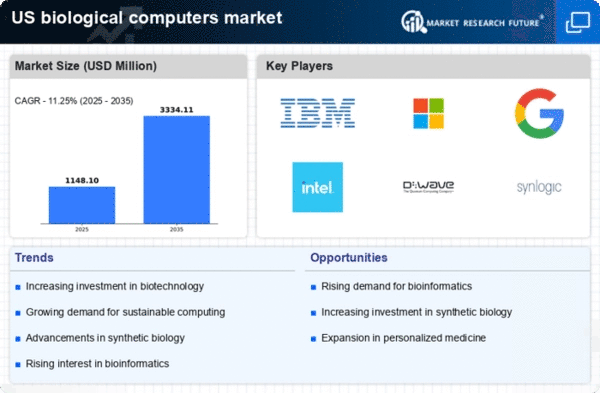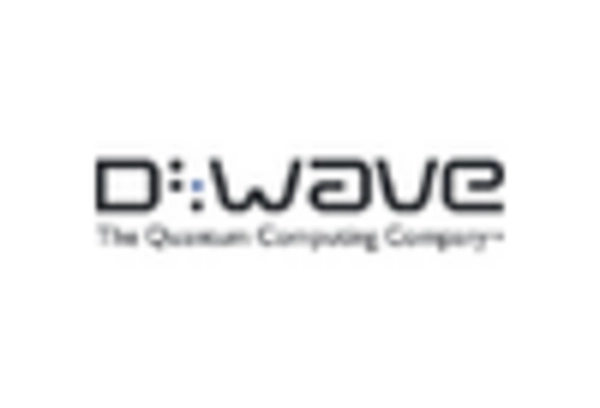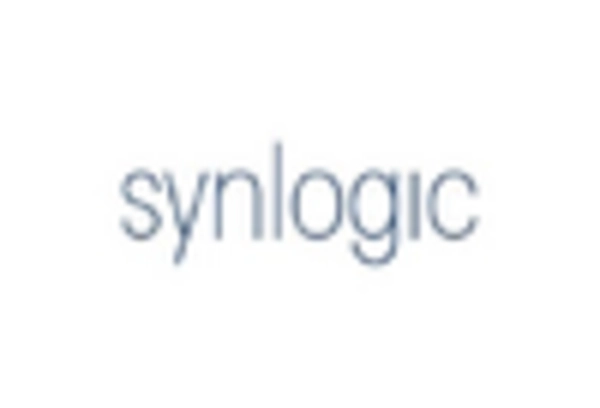Rise of Personalized Medicine
The biological computers market is significantly impacted by the rise of personalized medicine. This approach tailors medical treatment to the individual characteristics of each patient, often utilizing biological data for decision-making. As healthcare shifts towards more personalized solutions, biological computers can play a pivotal role in processing complex biological information. The market for personalized medicine is anticipated to exceed $2 trillion by 2025, highlighting the potential for biological computing technologies to enhance patient outcomes. This trend suggests that the biological computers market will likely see increased collaboration between tech companies and healthcare providers to develop innovative solutions.
Increased Focus on Data Security
The biological computers market is also shaped by an increased focus on data security. As biological computing systems handle sensitive biological data, ensuring the security and privacy of this information is paramount. The rise in cyber threats has prompted organizations to invest in advanced security measures, which could lead to the development of more secure biological computing systems. The market for cybersecurity solutions is projected to grow to $300 billion by 2024, indicating a strong demand for secure systems. This focus on data security may drive innovation within the biological computers market, as companies seek to create robust solutions that protect sensitive information.
Advancements in Synthetic Biology
The biological computers market is experiencing a surge due to advancements in synthetic biology. This field focuses on designing and constructing new biological parts, devices, and systems. As researchers develop more sophisticated synthetic organisms, the potential applications for biological computing expand. For instance, synthetic biology can lead to the creation of biological circuits that mimic electronic components, enhancing computational capabilities. The market is projected to grow at a CAGR of approximately 25% over the next five years, driven by these innovations. Furthermore, the integration of synthetic biology with artificial intelligence is likely to yield novel solutions, thereby attracting significant investment in the biological computers market.
Growing Demand for Biocompatible Materials
The biological computers market is influenced by the increasing demand for biocompatible materials. As industries seek to develop devices that can seamlessly integrate with biological systems, the need for materials that do not provoke an immune response becomes critical. This trend is particularly relevant in healthcare, where biological computers could revolutionize diagnostics and treatment. The market for biocompatible materials is expected to reach $20 billion by 2026, indicating a robust growth trajectory. This demand is likely to drive innovation in the biological computers market, as companies strive to create systems that are not only effective but also safe for human use.
Expansion of Educational and Research Institutions
The biological computers market is benefiting from the expansion of educational and research institutions dedicated to biological sciences. As universities and research centers increase their focus on interdisciplinary studies, the collaboration between biology, computer science, and engineering is likely to flourish. This trend fosters innovation and attracts funding, which is essential for the growth of the biological computers market. The National Science Foundation has reported a 15% increase in funding for biological research initiatives, suggesting a supportive environment for advancements in this field. Consequently, the biological computers market may see a rise in new technologies and applications emerging from these academic collaborations.
















